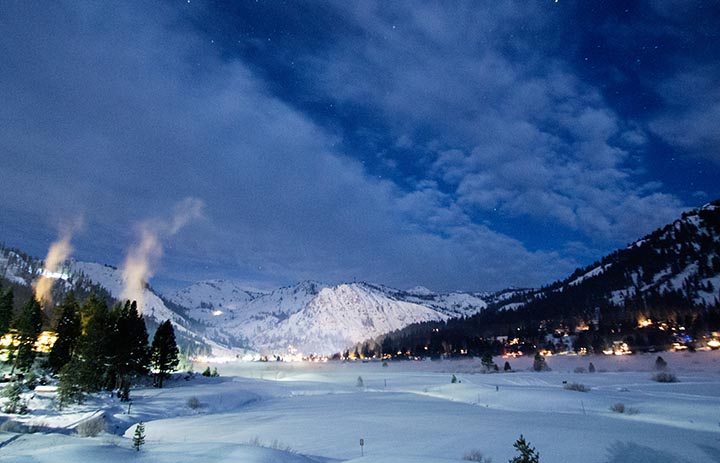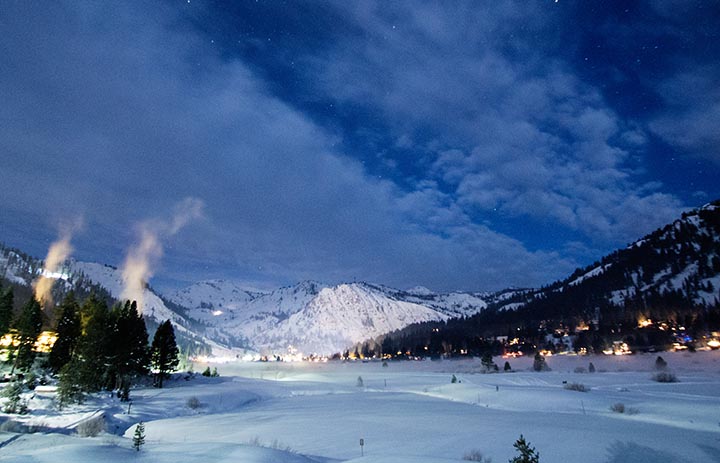Wood Stove Curtailment Forecasting in Portola, California
Clients
Northern Sierra Air Quality Management District (NSAQMD)
Residential wood smoke can lead to elevated concentrations of fine particulate matter (PM<sub>2.5</sub>) in many locations during the winter, especially during periods with limited atmospheric mixing and dispersion. Communities in mountainous regions can be particularly susceptible to these conditions as the terrain blocks stronger winds, allowing temperature inversions to trap pollutants near the surface.<br>
Meteorologists at Sonoma Technology assist the city of Portola—located in the Sierra Nevada mountains of California—by issuing wood stove curtailment alerts during periods of poor dispersion. When an alert is issued, NSAQMD asks the residents of Portola without registered EPA-compliant woodstoves to refrain from burning in an effort to minimize the effects of PM<sub>2.5</sub> concentrations on local air quality. Forecasters at Sonoma Technology developed a decision-tree model to predict PM<sub>2.5</sub> concentrations for supporting curtailment alert forecasts in Portola. The model was developed using machine learning, with forecast parameters customized for the complex terrain and highly variable weather conditions of the northern Sierras. This tool helped forecasters issue targeted woodstove curtailment alerts during the winter of 2022-23, which reduced the highest PM<sub>2.5</sub> concentrations in Portola as residents reduced burning during alert days. The woodstove curtailments, combined with an unusually stormy winter, resulted in fewer days where Air Quality Index (AQI) levels reached the Unhealthy for Sensitive Groups (USG) and Unhealthy categories in Portola compared to the three previous seasons.
Meteorologists at Sonoma Technology assist the city of Portola—located in the Sierra Nevada mountains of California—by issuing wood stove curtailment alerts during periods of poor dispersion. When an alert is issued, NSAQMD asks the residents of Portola without registered EPA-compliant woodstoves to refrain from burning in an effort to minimize the effects of PM<sub>2.5</sub> concentrations on local air quality. Forecasters at Sonoma Technology developed a decision-tree model to predict PM<sub>2.5</sub> concentrations for supporting curtailment alert forecasts in Portola. The model was developed using machine learning, with forecast parameters customized for the complex terrain and highly variable weather conditions of the northern Sierras. This tool helped forecasters issue targeted woodstove curtailment alerts during the winter of 2022-23, which reduced the highest PM<sub>2.5</sub> concentrations in Portola as residents reduced burning during alert days. The woodstove curtailments, combined with an unusually stormy winter, resulted in fewer days where Air Quality Index (AQI) levels reached the Unhealthy for Sensitive Groups (USG) and Unhealthy categories in Portola compared to the three previous seasons.
Air Quality
Forecasting
Meteorology


Steve T. Irwin

Steve
T.
Irwin
Meteorologist
sirwin@sonomatech.com
/sites/default/files/2023-03/STIres.pdf
